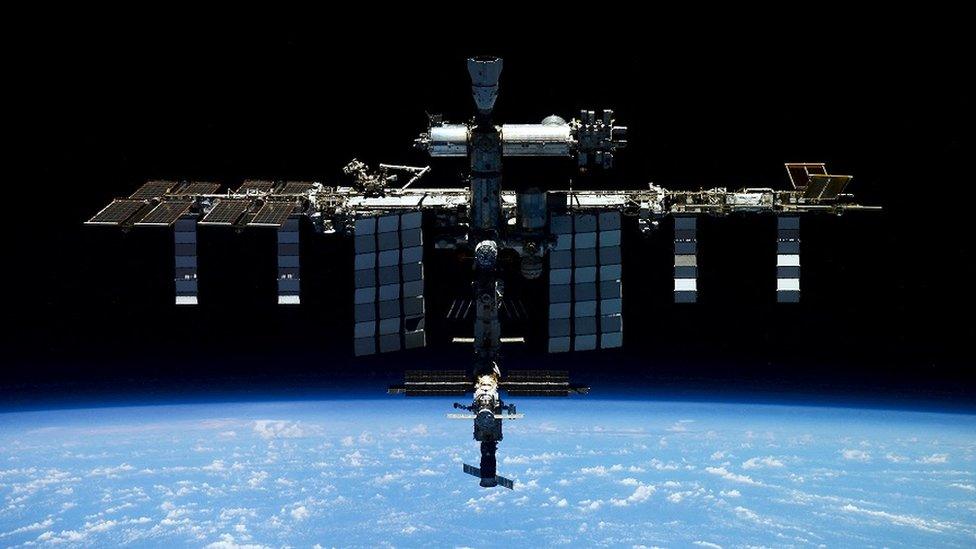Nasa plans to deorbit the ISS by using a 'space tug'
- Published
- comments

There are plans to remove the ISS from orbit after 2030
The International Space Station (ISS) has been in orbit for over 20 years, but its time in space will eventually come to an end.
Nasa is planning to deorbit the spacecraft (or, take it out of space) after 2030, and the way in which it's looking to go about this is rather unusual.
The space agency is looking into creating a new 'space tug' which will safely remove the ISS from orbit.
A space tug is a type of spacecraft or vehicle used for various purposes, from the provision of supplies to the ISS, to adjusting the position of satellites.
After its deorbit, the remains of the ISS will then burn up in a safe area in the Earth's atmosphere over the South Pacific ocean.
Nasa launches many of its missions from the Kennedy Space Center in Florida, USA
The White House recently released details on the budget Nasa requested for 2024.
The space agency is looking to get its hands on $27.2 billion and it's hoping to use $180 million of this to kick off its efforts to remove the ISS from space.
At the moment, Nasa is planning to make use of an existing Russian spacecraft called Progress to remove the ISS from orbit.
What is the International Space Station? (2018)
The space vehicle is currently used as a cargo ship to get additional supplies to the ISS.
"Our current model is still to use [the Russian spacecraft] and we're continuing to work with our Russian counterparts on how to deorbit safely with the Progress vehicles," Kathy Lueders,鈥痺ho is the associate administrator for NASA Space Operations, told the website Gizmodo.
Meet the scout who's passionate about space
However, the agency is also looking at other possible options and this includes the US building its very own deorbit spacecraft.
Russia has already expressed its plans to remove its cosmonauts from the ISS after 2024 and build its own space station, which suggests a US built space tug could be a better option for Nasa.
However, removing the ISS from space won't be a cheap operation either way.
It's estimated the space tug project will cost around $1 billion in total, with the initial $180 million requested allowing Nasa to make a start on the project in 2024.
- Published4 January 2023
- Published20 November 2022
- Published22 November 2022
